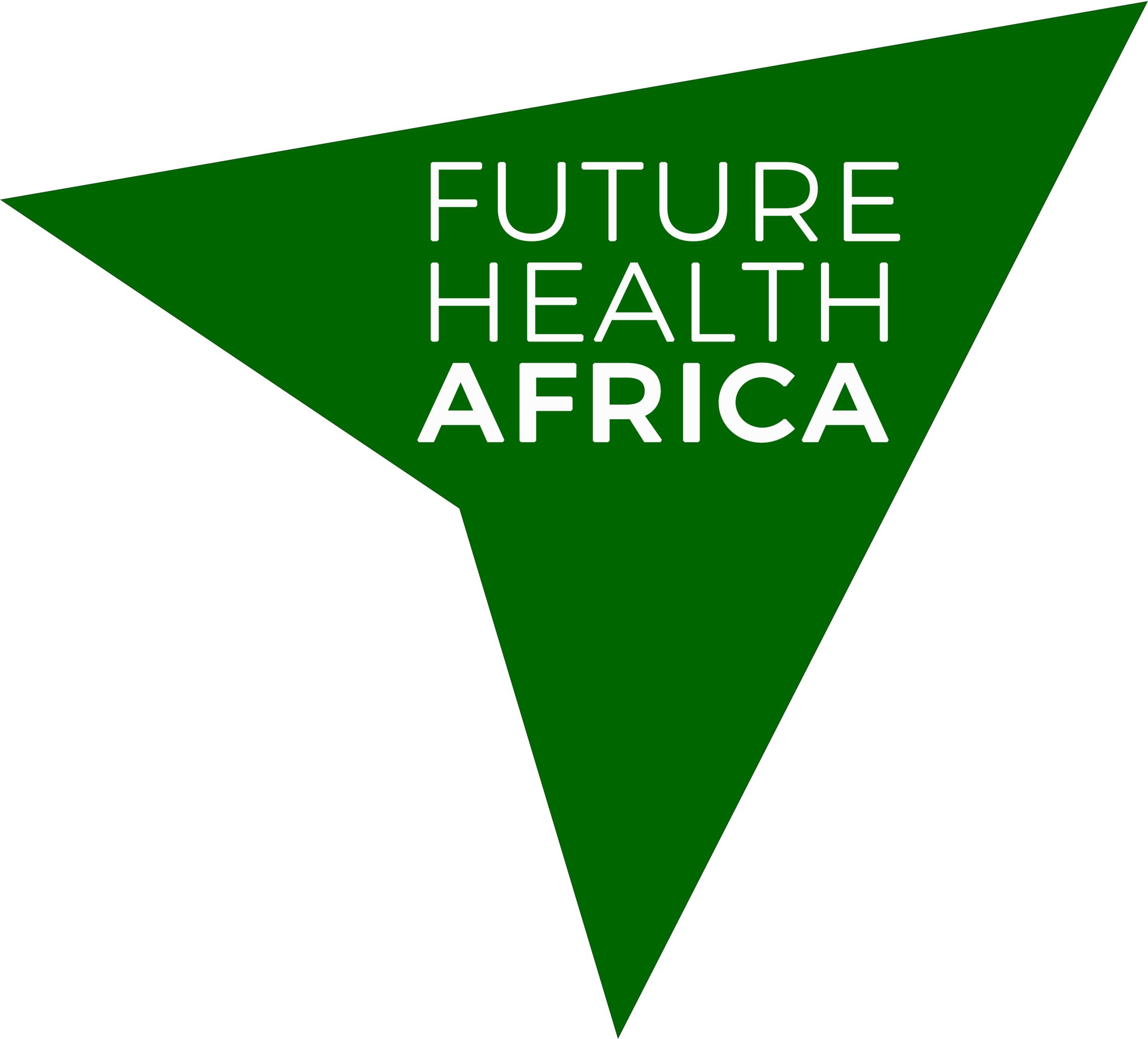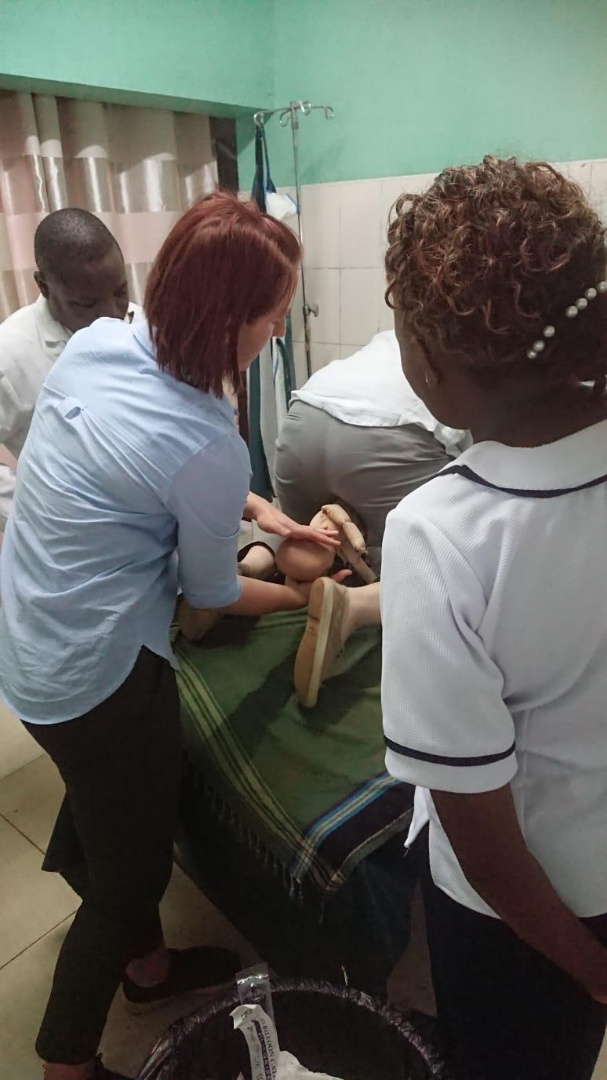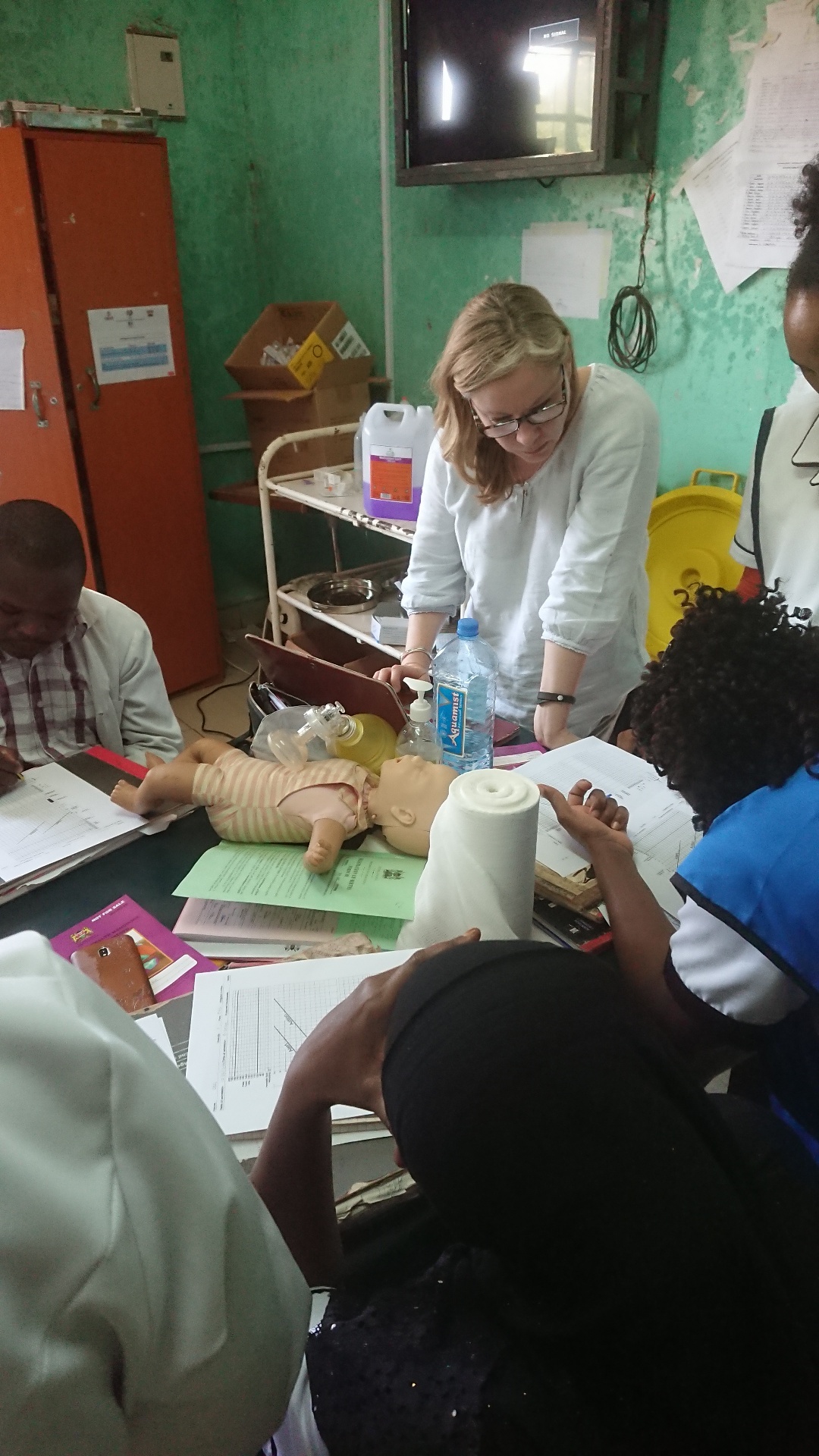future health africa:
MATERNITY
OVERViEW / what we do / background / team / outcomes & achievements / CASE STUDIES / GALLERY / Future aims
OVERVIEW
Maternal and neonatal death rates in Kenya are 60 times higher than in the UK. In some rural counties in Kenya the maternal mortality rate is over 3,500 per 100,000 births. This translates to 10 women per day dying during childbirth or from birth related complications. Only 44% of Kenyan women are assisted by a trained health care professional during childbirth.
The majority of maternal deaths occur due to complications in childbirth such as excessive bleeding, obstructed labour or infection. Management of common obstetric emergencies can be very poor due to issues such as a failure to recognize the severity of the clinical situation and subsequent substandard management due to lack of knowledge and skills.
Maternal death rates are closely linked to income and educational levels, leaving the most vulnerable women in society at greatest risk.
Local mothers waiting for care for themselves and their children in the local clinic. Laparua, Feb 2017.
WHAT WE DO
Below: Maternity projects since 2013 in Kilmanjo, Leparua, Garamata & Nanyuki
Community projects
Many counties, particularly in rural areas of Kenya, still see poorly trained traditional birth attendants or female elders practicing outdated techniques predominantly providing the care to childbearing women in their communities.
We work closely with rural clinics to engage local women and traditional birth attendants to improve maternal and neonatal outcomes within their communities. We aim to break down barriers, often perceived barriers, which prevent women from accessing skilled birth attendants.
We work with traditional birth attendants empowering them with the knowledge and skills to recognise which women are at increased risk of developing antenatal and intrapartum complications. Early recognition of these complications allows access to health care professionals and saves lives.
Our aim is to promote greater uptake of maternity care from a skilled birth attendant in rural clinics through improved understanding of benefits and trust in health care professionals.
We also train in initial community-based management of common obstetric emergencies. These emergencies are time critical; dissemination of knowledge and skills in rural communities aids the swift recognition of problems transfer to skilled professionals which saves lives.









Hospital projects
Many hospital staff have received no updates and training in the management of obstetric emergencies since qualifying. In the UK this is a mandatory annual requirement for all maternity staff. Staff in Kenya are also rotated to all areas of care allowing for no specialisation. Many maternity staff may therefore have been working for years in other departments before rotating to maternity wards with no training course or skills refresher before being placed in a situation where they are expected to manage life threatening emergencies on a daily basis.
We offer an accredited one-day obstetric emergency training course which aims to address the need for an annual update for maternity staff and those newly rotating to the maternity unit. The focus of the course is refreshing basic midwifery skills, early recognition and treatment of the five most common obstetric emergencies. The day comprises interactive lectures underpinned by the latest research-based evidence in safe and effective care and skills workshops to refresh practical skills and management. The focus in the skills workshops is on effective teamwork and communication which underpin safety in emergency situations.
To date, we have provided training in six hospitals and multiple clinics in Kenya, ranging from the largest maternity unit in East Africa, where they have 23,000 births per year, to remote rural clinics where they may only have a couple of births a month.
For donations to help with maternity you can donate via kind link at https://donate.kindlink.com/Future-Health-Africa/5220
The equipment we need to provide hospital training
BACKGROUND
Our maternity projects started in 2013 driven by requests from maternity staff in Nanyuki for updates on management of obstetric emergencies. In maternity care you can achieve a life changing impact on outcomes through good hands-on clinical skills; very little drugs or equipment are needed to have significant impacts. This means there is enormous potential to make significant differences to mortality and morbidity rates through provision of very low-cost training sessions. These training sessions evolved organically over the first few years, driven by local maternity teams and ourselves, resulting in a one-day obstetric emergency training course reflective of local guidelines and facilities, and affiliated by the National Resuscitation Council of Kenya. The course has been very well received and has been delivered in hospitals and clinics across Kenya. Our aim is to train teams within each facility to provide regular updates for their staff.
The community projects started as a weekend hobby and interest in seeing different maternity practices in Kenya particularly in rural Masai areas. The initial contacts started as informal story sharing under various trees. We share stories about birth complications or problems they have experienced with local women in pregnancy. They tell us how they have dealt with these issues and then we tell them how we would deal with the same issues, often to great delight. The sharing and mutually respectful open discussions have allowed transfer of skills and learning in a gentle way, which is well received and has great impact.
We work closely with local clinics striving to increase the rate of women birthing within healthcare facilities. Over the past five years we have built respect and understanding within the communities we work in and have been able to tackle other issues such as FGM and teenage pregnancy. On request, we then provide local specialists to provide training on these issues.
Our first ever community training day. Katy having a breech delivered by a TBA. Leparua, Aug 2013
OUR TEAM
Lizzie Troy, Katy Vidler & Jacq Crow
Katy Vidler and Lizzie Troy went to Kenya together in 2013 for their elective placements at the end of their midwifery training. It was this experience which gave them the insight into the need for staff training and development and led them to develop the teaching package our ongoing training days are based on. Katy subsequently started work at Chelsea and Westminster Hospital where Jacquelyn Crow was her team leader. They quickly discovered a joint ambition for working to reduce health inequalities and the team came together.
Jacq is a senior midwife with over 20 years experience in the NHS. Until recently she was a community midwifery team leader at Chelsea and Westminster Hospital. Having recently relocated to Devon, Jacq now works as a community midwife for Torbay Hospital. Her passions are home birth and teaching good clinical skills as the basis of safe care.
Katy is a midwife based in Bath. She has a background of working in international development in Asia. She was inspired to become a midwife whilst working in Cambodia and being struck by the inequalities in women's health. She is passionate about midwifery training and in developing excellence in basic midwifery skills.
Lizzie is a midwife currently based in Switzerland. With a passion for home births, she previously worked on a community case loading team in Devon. Lizzie is always striving to develop herself, as well as others. She has recently taught herself German medical terminology in order to work in her new job.
OUTCOMES AND ACHIEVEMENTS
Through the introduction of birth packs to rural clinics we have incentivised local women to birth with a healthcare professional. Women will come to the clinic to birth and receive their packs, comprising of sanitary pads, kangas (sarongs), soap, a bucket and a cup. This can then start a long running relationship between the women and healthcare professional breaking down boundaries and meaning she is more likely to receive ongoing care for herself and her family.
The community is now building a maternity manyatta (house) close to the clinic to house pregnant women in the weeks and days up until their deliveries. This enables women to be close to medical support for their labour and eliminates the need to travel long distances in labour, which had previously acted as a huge barrier to the uptake of maternity care.
Obstetric training within the hospitals has been incredibly well received and follow up training has always been requested. Our course has been affiliated by the National Resuscitation Council of Kenya and was described by the Liverpool School of Tropical Medicine as complementary to their five days course.
Birth pack, Kangas, soap, sanitary pads, a cup, some cotton and a bucket. Leparua, Dec 2015
CASE STUDIES
Mary
Mary is a young, Masai mother of four and is expecting her fifth child. She lives two hours from the outreach clinic in Leparua and has had the other babies in her hut, without the help of a registered midwife. She heard that the maternity project had visited Leparua and brought more safe birth packs for the nurse there to distribute to mothers who use the clinic. Mary set out to Leparua when she thought labour might be starting and had her baby shortly after arriving there, she received skilled care from the resident nurse Haggi and went home the next day with some essentials to keep her and baby healthy and safe in the first few weeks after birth. Mary showed other young women in her village the safe birth pack and encouraged them to attend the clinic.
Each safe birth pack costs just £4, it contains antibacterial soap, cotton and maternity pads, a cup and fortified cereal and two Lesso blankets. We also provide the clinic with a stock of warm baby clothes to send mothers in need home with. These are then shared by the community and have been a very successful way of encouraging the use of a skilled birth attendant in the clinic rather than traditional healers in the community.
James
James is a registered nurse/midwife. He qualified in 2011 and has been working since 2014 in a very remote clinic in the Isiolo district. His outreach facility serves a wide range of patients from the local community and he often manages emergency situations, stabilising mothers and babies before organising transfer to the referral hospital if required.
James was offered a place on an Obstetric emergency training day and attended the theoretical and skills drills sessions with colleagues from other clinics in the area. We asked for written feedback on how useful the training was for each of the candidates.
"The skills I have learned and refreshed here today will help me to serve the community with more confidence and better technique. I see many women with these problems every month and now I can manage these emergencies and show my other colleagues what I have learned."
James, Lewa, March 2019
GALLERY
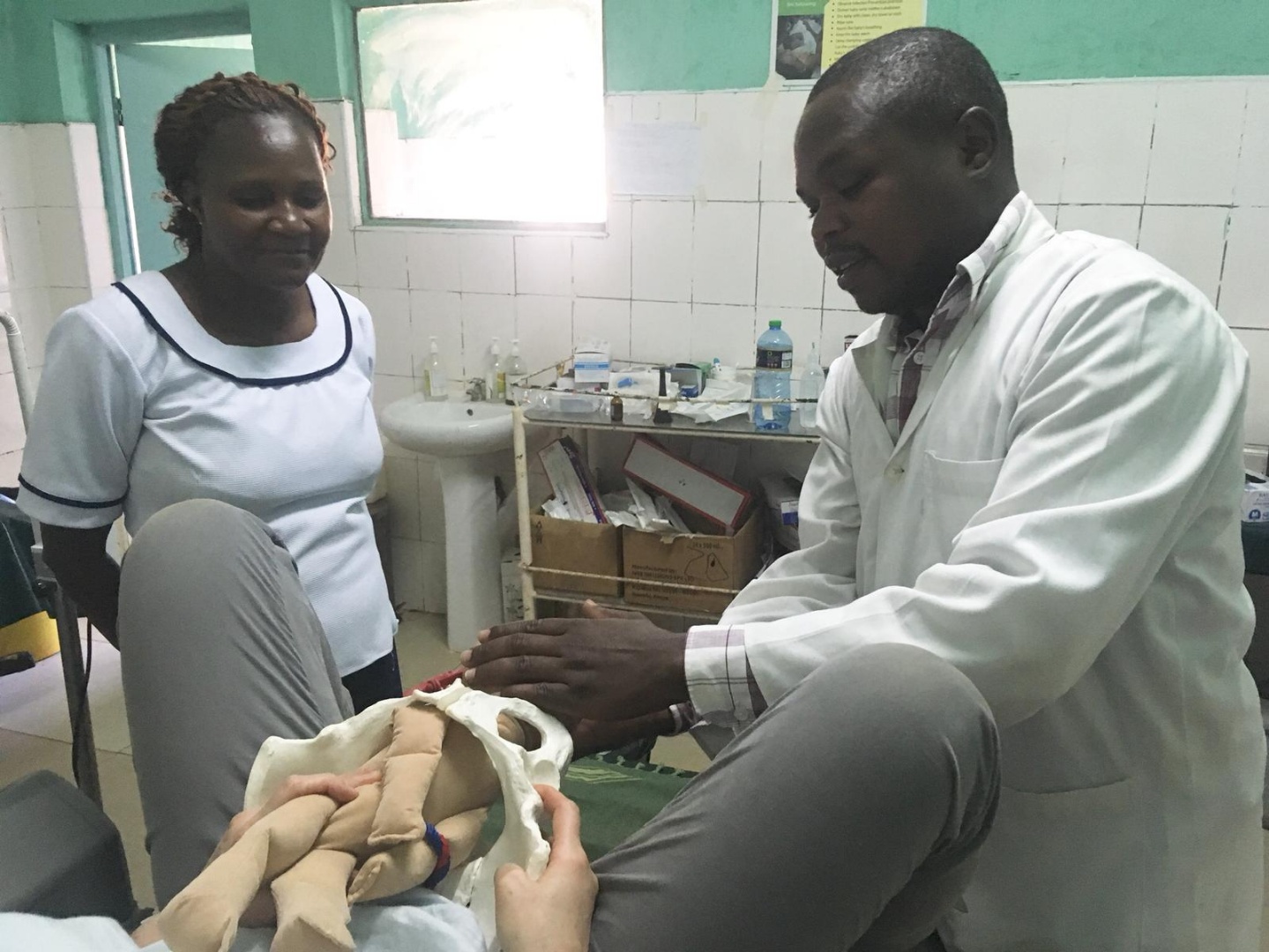
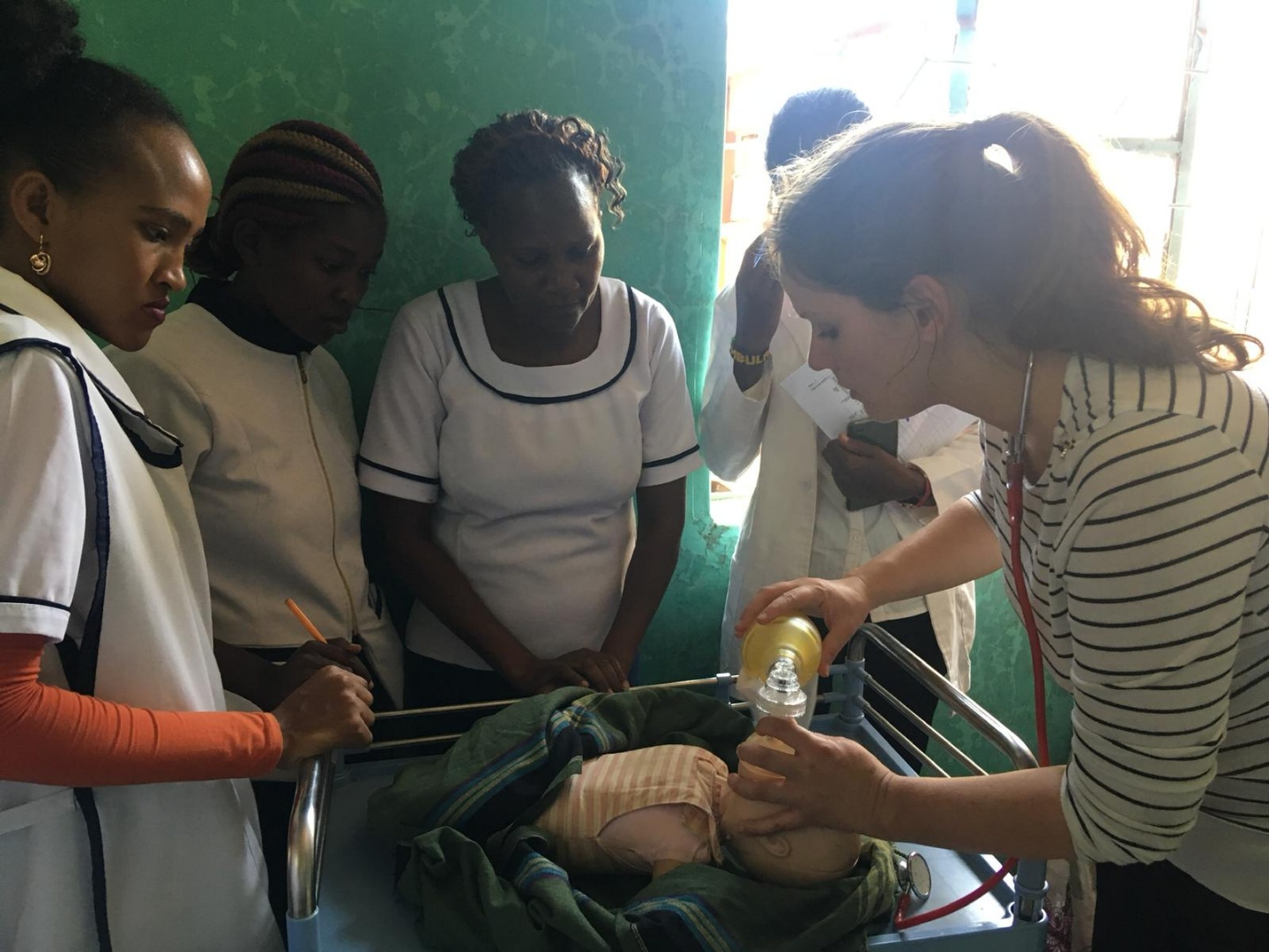
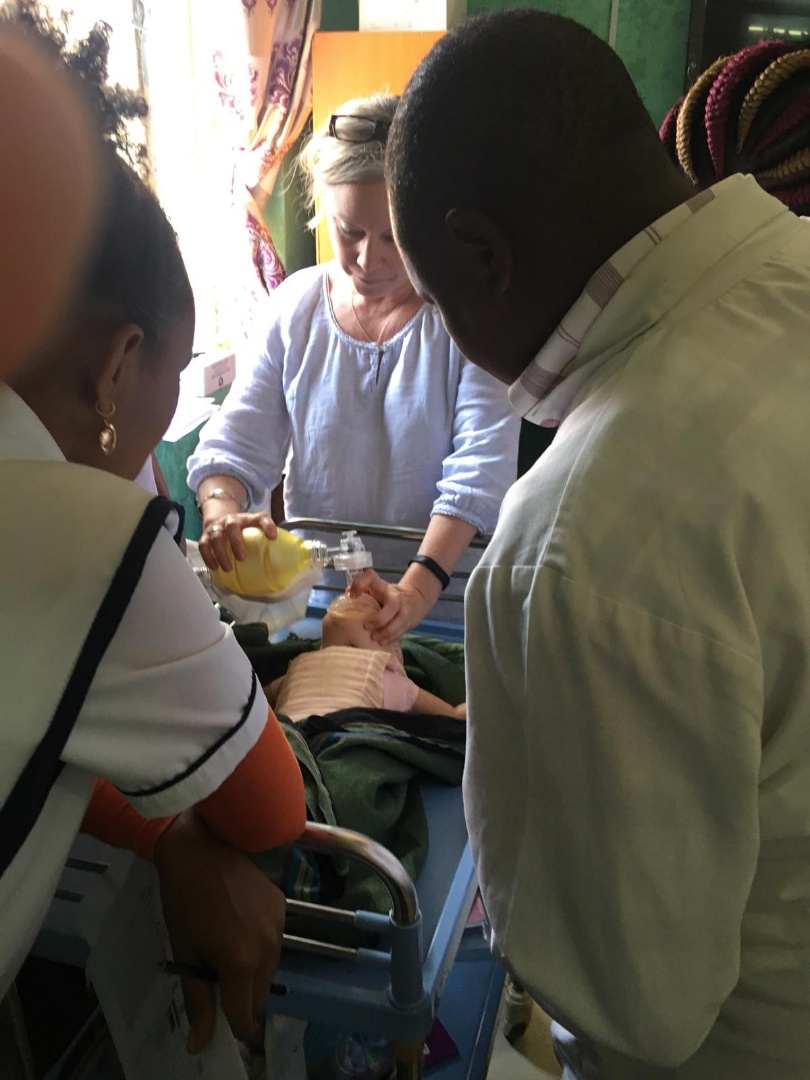
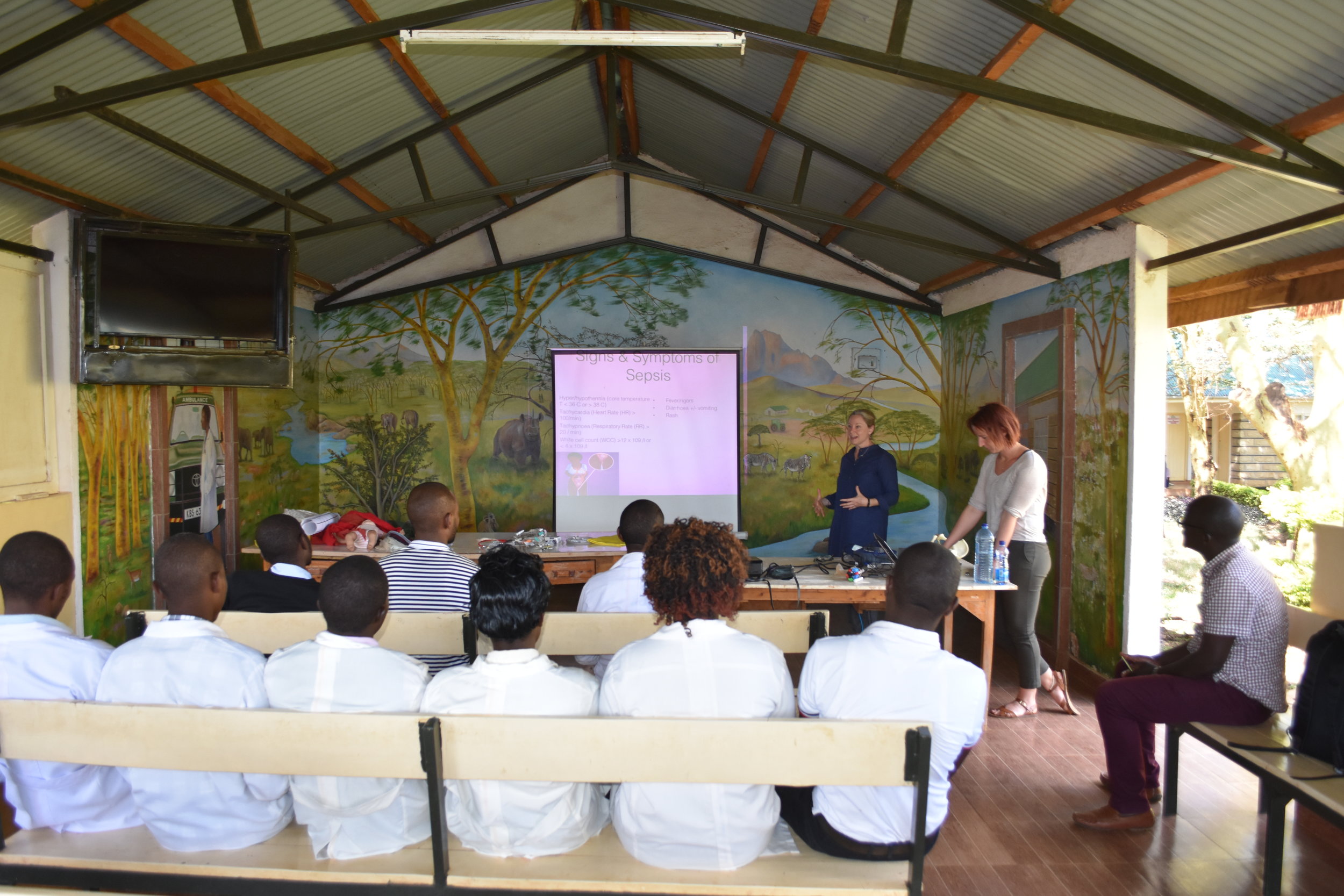
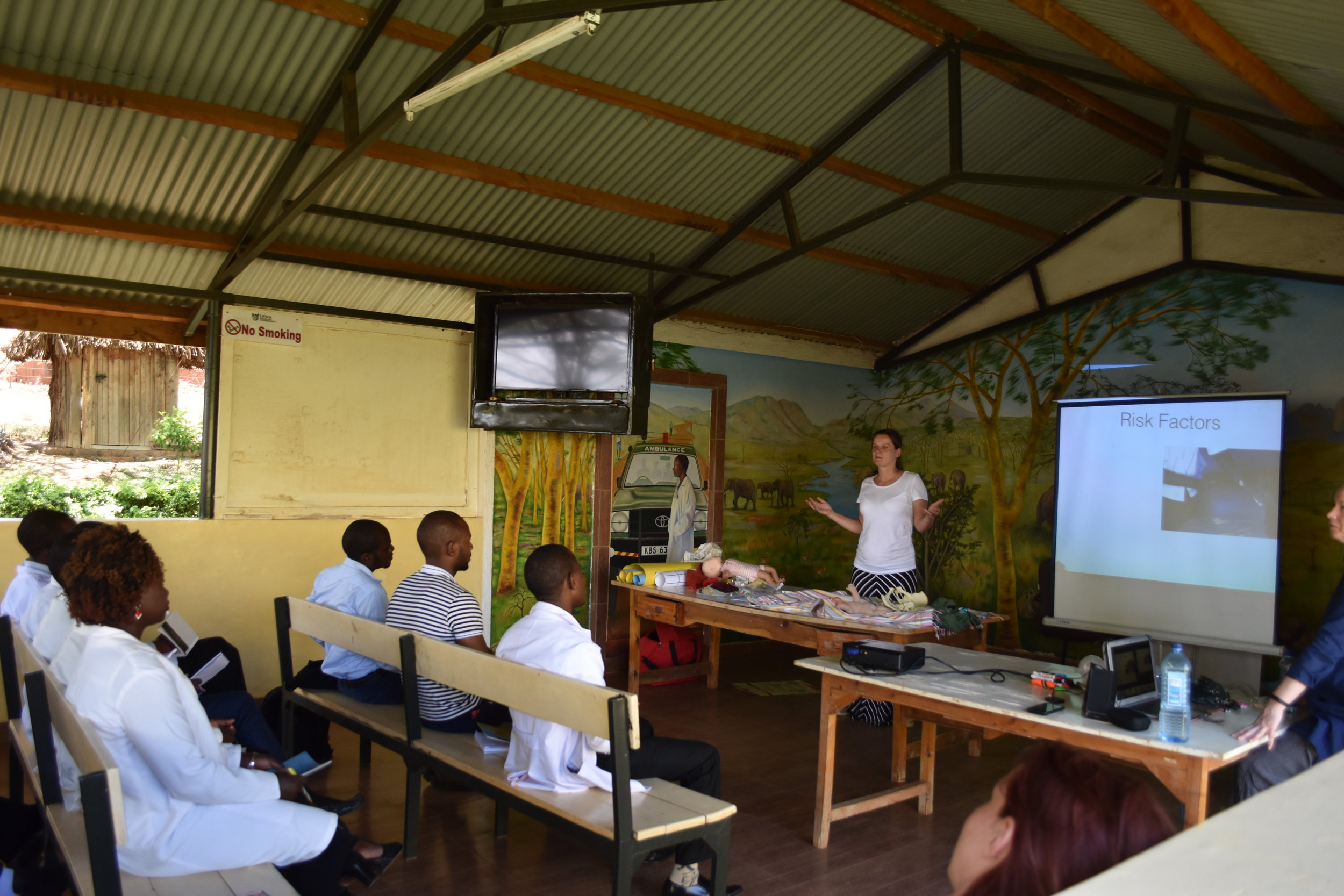
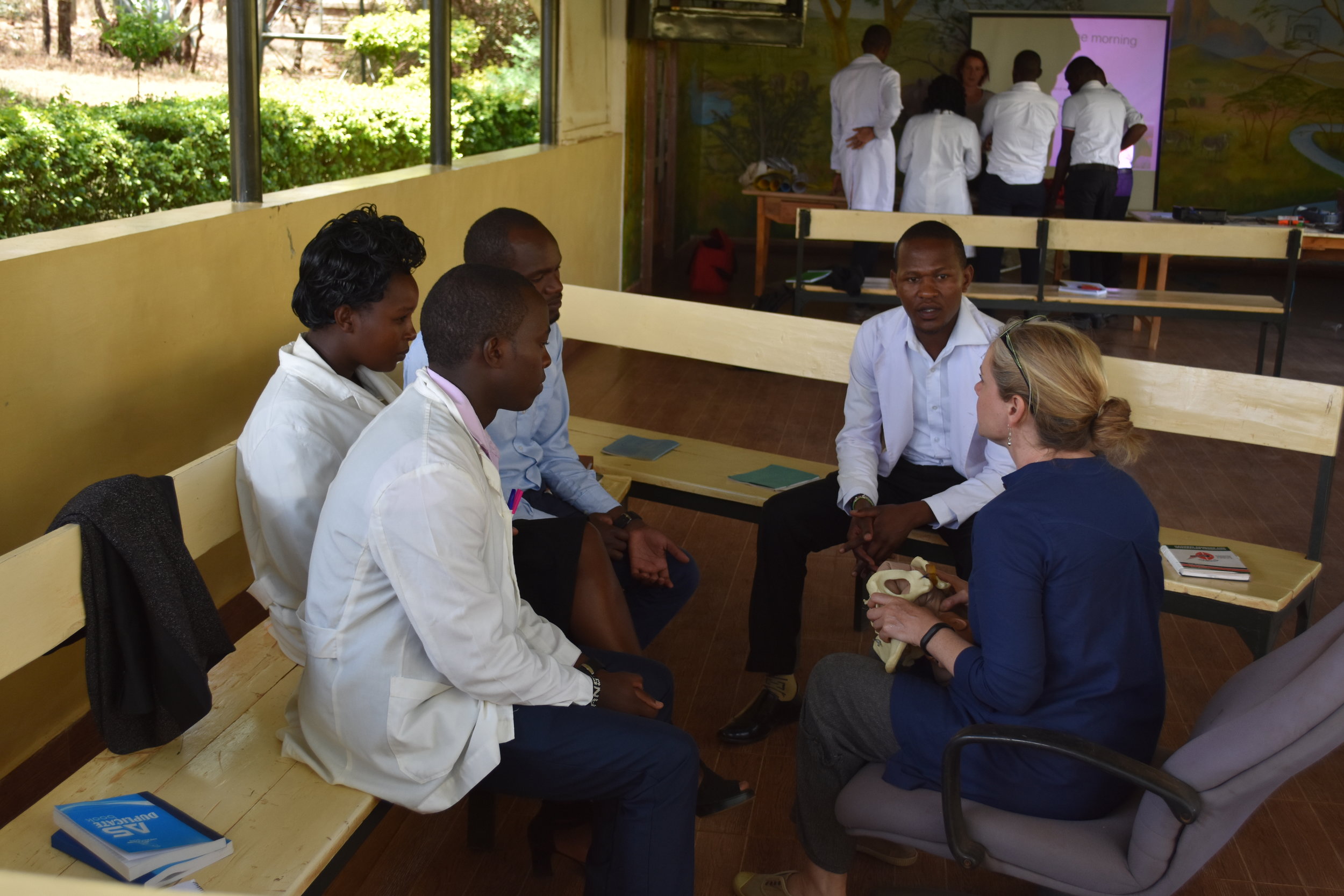
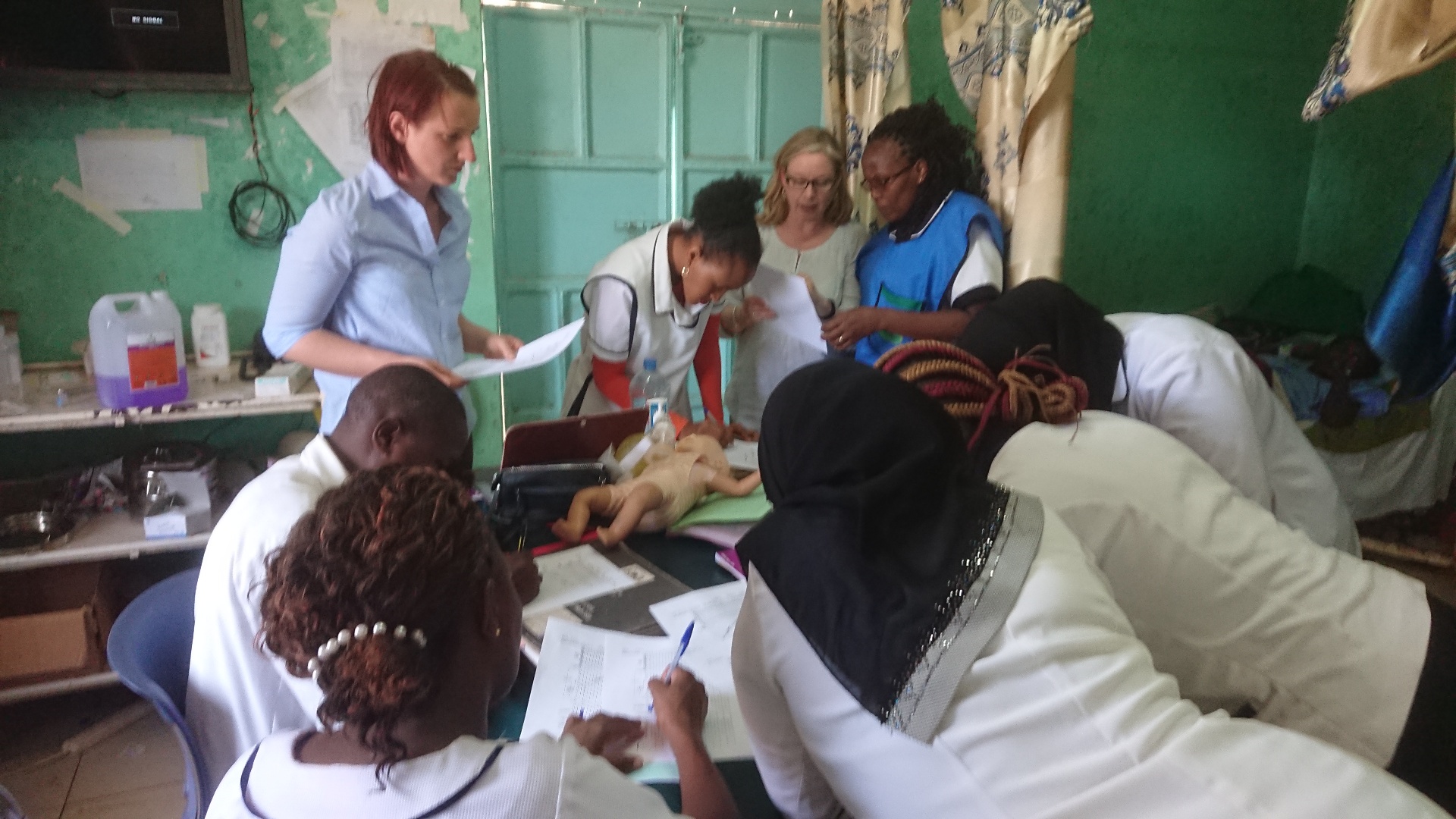
FUTURE AIMS
We aim to continue hospital based training, focusing on reaching more rural areas. The hope is to establish teams within each facility that are well trained to provide yearly updates and training to their colleagues. We hope that all staff within these hospitals will receive maternity updates prior to rotating to the specialty from other clinical areas.
We will continue to support the communities we work in to drive their own change. We will continue to work closely with women’s groups to break down barriers in accessing health care.
